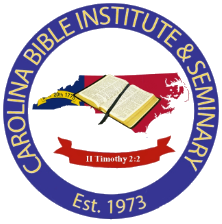HOW TO STUDY THE BIBLE OVERVIEW
“How to Study the Bible” is a foundational course designed to equip students with essential skills and methodologies for effective and meaningful Bible study. This course goes beyond mere reading, guiding students in understanding the historical context, interpreting various genres, and applying biblical principles to contemporary life.

Holy Bible and notebook with pencil on wooden table, closeup. Religious book
“How to Study the Bible” empowers students to engage with the Scriptures in a meaningful and transformative way, providing them with the tools and knowledge to approach biblical texts with depth and understanding.
DETAILS
- Exegetical Paper on a Selected Passage
- Group Presentation on a Biblical Genre
- Application Projects Linking Scripture to Contemporary Issues
- Use of Study Tools and Resources in Class Assignments
- Final Reflective Essay
Up To Date Curriculum
- Understanding Biblical Genres: Learn to identify and interpret various literary genres present in the Bible, including historical narrative, poetry, prophecy, wisdom literature, and epistles.
- Historical and Cultural Context: Explore the historical and cultural contexts of biblical passages. Understand the socio-political, religious, and cultural settings in which biblical books were written.
- Hermeneutical Principles: Develop a solid foundation in hermeneutics – the principles of biblical interpretation. Learn methods for exegetical study, including linguistic analysis, literary context, and theological interpretation.
- Contextual Application: Gain skills in applying biblical principles to contemporary life. Discuss how biblical teachings can inform ethical decision-making, personal development, and community engagement.
- Study Tools and Resources: Familiarize yourself with various study tools and resources, including concordances, commentaries, language resources, and digital tools. Learn how to use these aids to enhance your understanding of the Bible.
- Theological Integration: Explore the overarching theological themes of the Bible and understand the coherence of the biblical narrative. Analyze how individual passages contribute to the broader theological framework.
- Personal Devotion and Reflection: Cultivate habits of personal Bible study and devotion. Develop reflective practices that allow for spiritual growth and a deeper connection with biblical texts.








